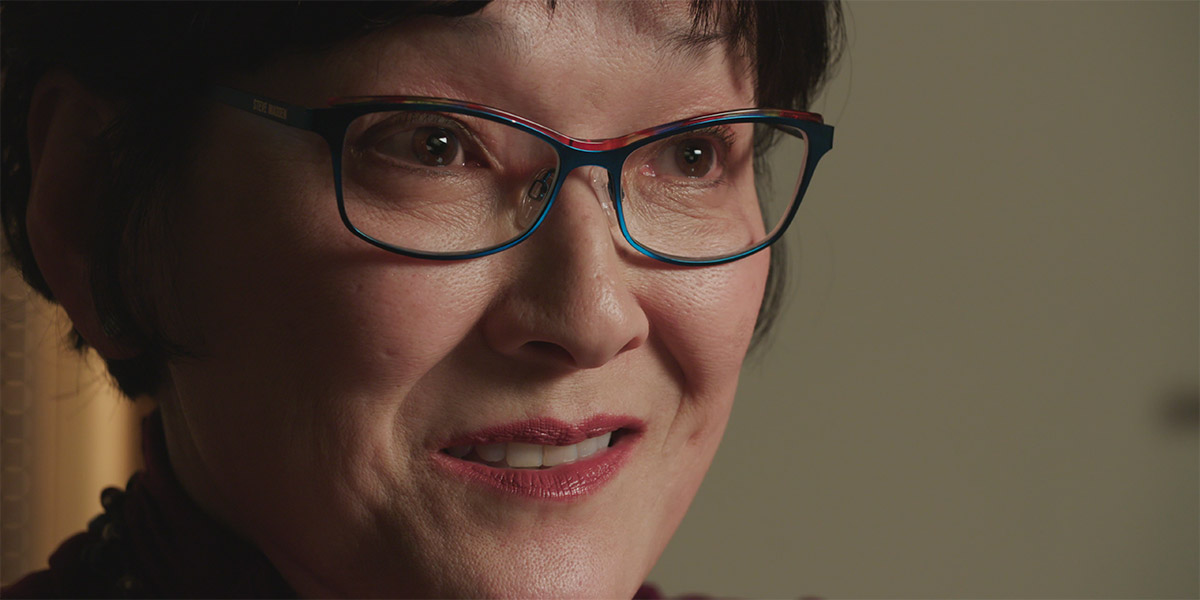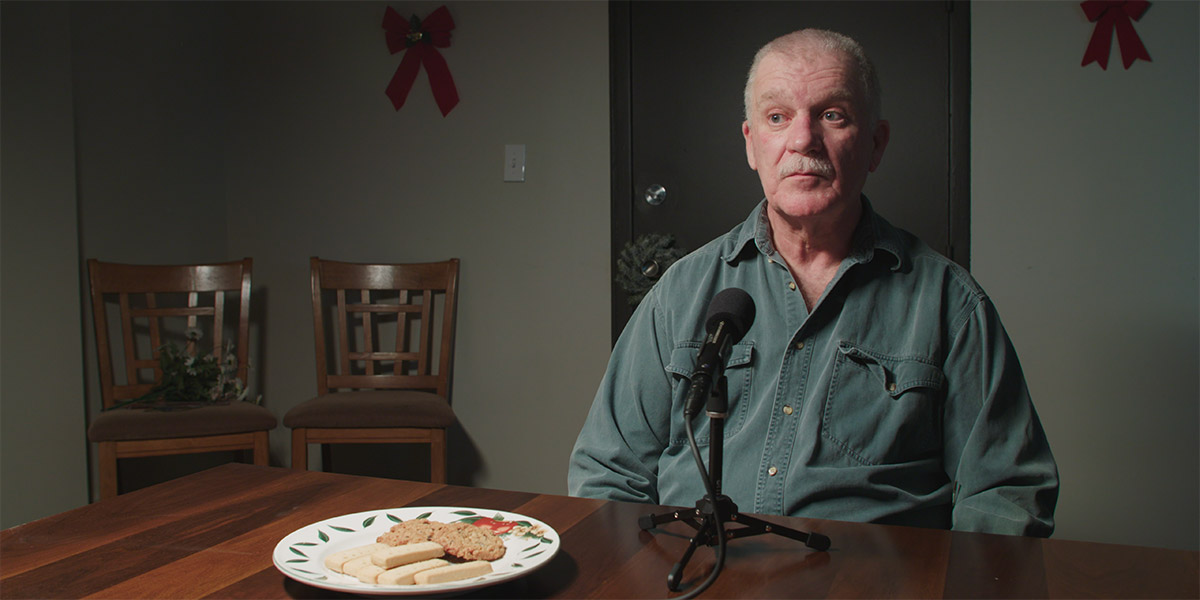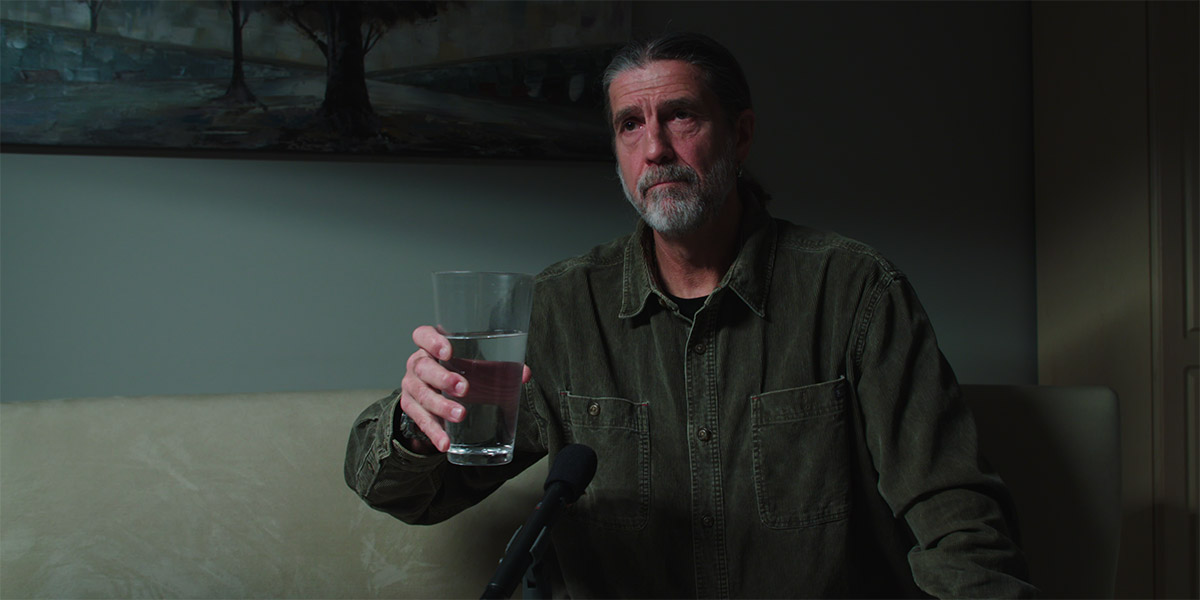A still from Coppers. (Photo credit: Courtesy of TIFF)
A look at the raw, behind-the-scenes lives of police officers.
Before shooting began, lawyers advised Alan Zweig that he was on thin ice with his wrenching documentary Coppers, a film that offers a raw, behind-the-scenes look inside the lives of police officers. Nevertheless, Zweig didn’t do any extensive research before interviewing the subjects – a group of thirteen retired police officers. He never does. Doing so would defeat the purpose, the award-winning filmmaker told me prior to the doc’s worldwide premiere at the Toronto International Film Festival (TIFF).
“I go there in faith that something will come out. I wouldn’t be good at getting people to be raw and open if I already knew their story going into it,” said Zweig, who acknowledges that he has “a way of getting out of their way.” His talent in doing so is obvious through his interviews with the former police officers, all of whom offer honest accounts of their lives on the job and the lasting impacts – the good, bad, ugly and impossible-to-shake. Viewers are left with disturbing imagery of things typically reserved for horror films and a newfound appreciation of those who serve and protect.
Prior to creating Coppers, Zweig’s interactions with police officers weren’t exactly positive; subsequently, he wasn’t a huge fan of the uniformed set. He attributes the tension to the fifteen years he spent driving a taxicab. “You would think cops and cabbies would be allies, but they’re not,” said Zweig. “They stop us, and hassle us and see how many tickets that they can give us because it’s 3am and they’re bored. I became really anti-authority. It grated my nerves. I didn’t like cops; then, I met a couple I kind of liked.” These individuals would ultimately inspire Coppers.
“There are two guys I met – one of them, Gary, is in the film. He is the one with the long hair. I meet him through mutual friends and they wanted me to help figure out making a film about him,” said Zweig. “When I meet him, I knew he must have been a tough guy once upon a time. But he was more fragile and I don’t know why it affected me so much, but I couldn’t stop thinking about it.” Not long after, Zweig had a similar encounter with his friend’s father, a retired police officer, at a barbeque. The two experiences inspired an interest to dive deeper into backstories of cops with the film, something that would humanize them and change how Zweig – and, likely, most viewers of the gripping documentary – views their lives and profession.
The interview subjects were sourced through mutual friends and acquaintances, police officer networks, a professional association and online searches. “I do generally believe that if you get them [interview subjects] randomly, then 10 or so are as good as any 10 you would have gotten, and the story will be more or less the same no matter who they are,” said Zweig. Common themes among the interviewees – former officers from police divisions across Ontario – were impossible to ignore, and include things like alcoholism, broken relationships, suicide and sexism.
The documentary forces viewers to discover and consider certain realities of the daily lives of police officers and the impacts such realities have on everything from their mental health (then and now) to their family lives.




“I would be embarrassed to admit how many things I learned from making the film, and the only way I could have found out and known them was from interviewing people,” said Zweig, referencing often overlooked daily duties of being a cop, like dealing with dead bodies and gruesome accidents. “What surprised me about myself was that I had previously had a vision of cops and robbers, and shootouts, and bank robberies and investigating crimes [when I thought of the police], but not just going into finding a dead, decaying body in a house that smells. In general, those were the stories that most affected me, not just emotionally, but just the fact that I never thought about that.”
In the film, we hear how one cop had to scrape a stabbing victim’s guts off the street with a pizza box to hold him together in the ambulance; we hear of another arriving at the scene of a horrific car crash and seeing a child’s body hanging from a tree; another shot a bank robber and watched blood spurt out of him with each heart beat. The details definitely get gory. “Someone could have accused me of over-emphasis on that stuff, but for me, this is what surprises me; this is what is going to surprise the audience. It may even surprise them because it’s an obvious thing; we know they do these things,” said Zweig.
There was one story, says Zweig, that stuck with him. “There’s a story about a guy getting hit by a car right in front of him,” said Zweig of a police officer in the film. “And he’s sort of obsessed with the fact that he flew straight rather than in an arc like you would expect. On some level, that story really moved me; the fact that he’s so focused on the guy’s trajectory as he flew through the air to his death. It just seems like such a strange detail to fixate on, but I think it’s easier to fixate on that than on someone being killed right in front of you.”
While certain interviews may take awhile to shake off, Zweig says it takes a lot to actually shock him. I’m always surprised when they’re saying it, but on reflection, I’m never shocked,” says Zweig. Naturally, Zweig knew he needed to stay within certain boundaries during his interviews, as he legally couldn’t use any stories that would implicate other people. “On principle, I always think there are probably deeper, darker stories that they will never tell me.” After watching Coppers, the audience would probably agree.
The doc will hit TVO later this year.








